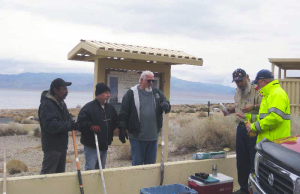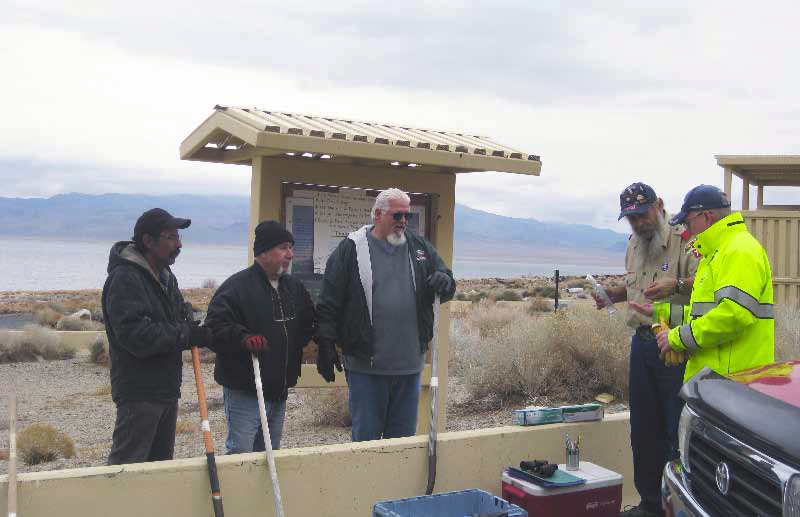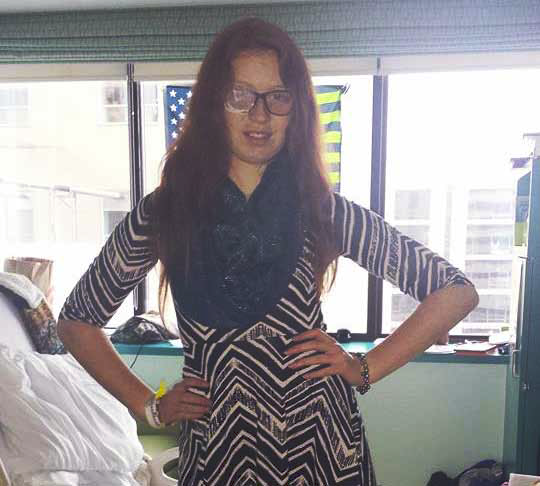
Teams were divided to not only remove the carcasses from their designated areas, they also inventoried the type of birds fallen by the outbreak of Cholera which has a foothold in Nevada and at this local lake. An easy checklist was provided to note an accurate count of birds picked up and destroyed. This will assist the Department of Wildlife and the Bird Observatory in monitoring the spread of the disease, narrowing down the birds most widely affected.
In a three hour event, teams began a walking trek to properly pick up birds while four ATV’s canvassed designated beach areas to pick up the completed bags, or provide needed materials. Most bags contained thirty birds with a weight of approximately forty pounds. At the end of the effort over 700 waterfowl had been collected over just a seven mile stretch of waterline.
Due to the large amount of moist debris, the birds were handled as bio-hazard material and taken to the landfill for the proper procedure of disposal. A bin was provided and moved properly for this type of situation, helping to eliminate a large portion of contaminated dead bird species from the beaches of our residents.
In final count, the main breeds picked up were Black Scoter, commonly known as Coots; Mallard Ducks and some Sea Gulls. Other bird species were noted but not as predominate as this overall duck population. Upon completion, volunteers agreed to watch the beach for a further outbreak. This successful effort took place with just four days of preparation, which encouraged everyone that a proactive approach is needed by the residents and concerned citizens of this area. Some local residents that could not physically assist stated their thanks and appreciation toward removing the decomposing birds, which will help the rotting odors that were starting to rise.
“Should another carcass cleanup be required it is clear there are those that care,” said Toby Montoya from The Walker Lake Crusaders group. Toby explained that his group continually volunteers their time to clean up around the lake. “We are concerned about the trash and debris that blows into the water from irresponsible beach goers and hunters. Most the time we can only get three to four people to show up, so this is such an encouragement. To see this many people united in volunteering means we have people that want to make a positive difference. We’ve needed this type of participation and interest out here.” Volunteers ranged from college age to retired residents.
As Montoya explained the vision of the Crusaders at the lake, it was clear that many volunteers wanted “a meet and greet” to learn more about their endeavors. Because of this, a Saturday morning overview called “We Love This Lake” was slated for Feb. 21 at 9 a.m., at the Buffalo Stop. Montoya and his Crusaders will come and present current information and opportunities available to help the lake.
(Note: Just three days after our volunteers did a full sweep of our shoreline, it appears there are no new diseased carcasses. From Mallet to King Arthur Court, only 26 dead birds were picked up. These birds were old and caught in the shore’s tumbleweeds, overlooked in the Friday cleanup due to the water current. In examining the water line, it is clean of deceased birds, which shows the effort was a successful, proactive approach for the time being. The residents are taking a diligent approach in watching the beach and water line for any additional problems. )



